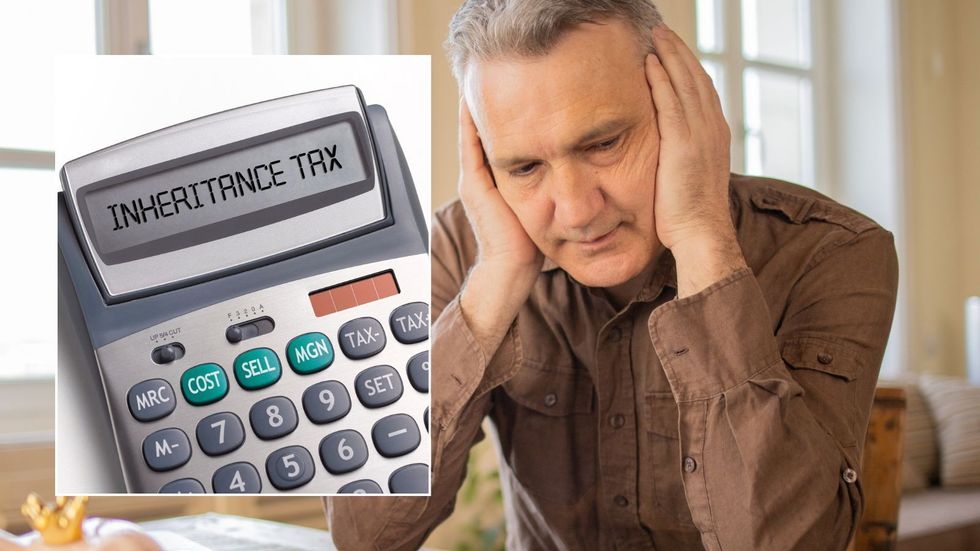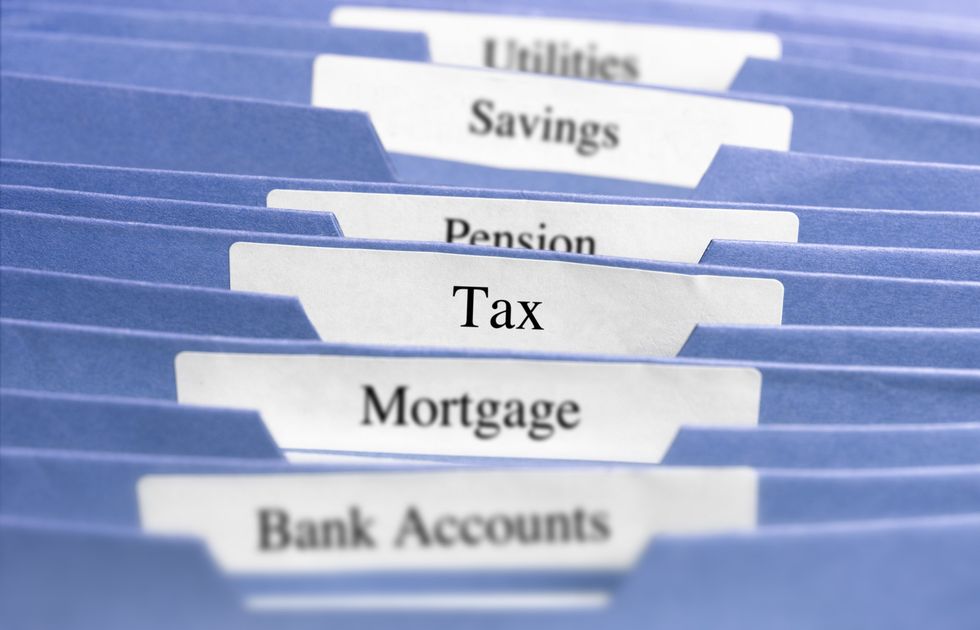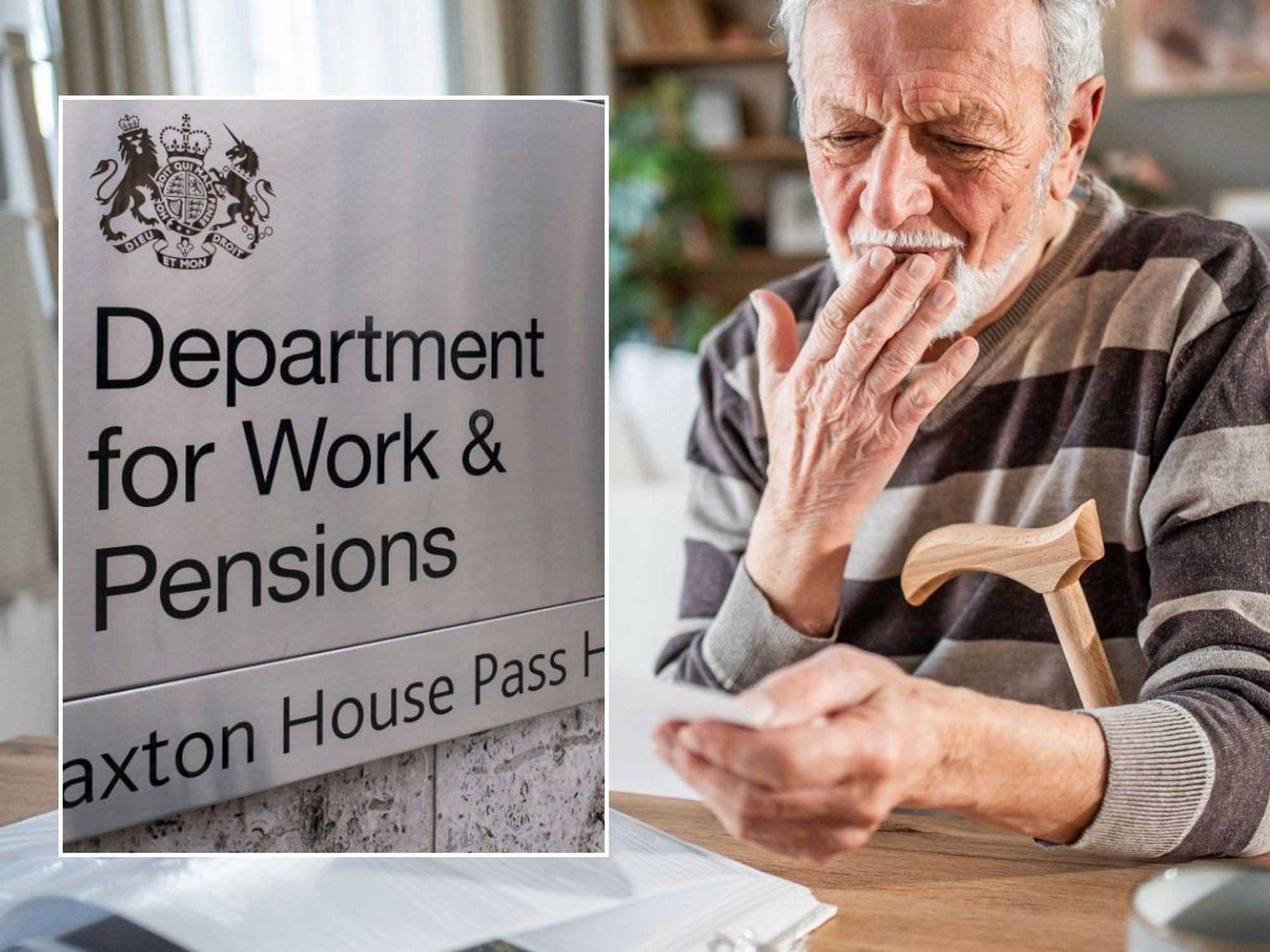Inheritance tax warning: Retirees urged 'spend pension savings first' or risk eye-watering 87% tax bill

Upcoming inheritance tax reforms could see thousands of families hit with massive bills as pensions are brought into the tax net for the first time
Don't Miss
Most Read
Retirees could face a huge 87 per cent tax bill on their pension savings when new inheritance tax rules come in from April 2027.
Financial experts are warning those with larger retirement pots to rethink their approach and consider using pension money before dipping into other assets.
For the first time, unspent defined contribution pensions will be included in inheritance tax calculations. When combined with income tax on withdrawals, families could lose almost 90 per cent of inherited pension savings in the worst cases.
The Government expects around 10,500 more estates each year to face higher tax bills as a result.
From April 2027, any pension funds left untouched when someone dies will count towards inheritance tax, forcing many retirees to rethink how they plan and draw their income in later life.
TRENDING
Stories
Videos
Your Say
Jonathan Watts-Lay, Director at WEALTH at work, advises that retirees with savings outside their pensions should consider a fundamental strategy reversal.
He said: "For those who have already retired and have additional savings beyond their pension, a shift in thinking and strategy could be beneficial.
"From an IHT perspective, it could now be better to spend pension savings first and preserve other assets for later on. This is the opposite approach to what has previously been the case,"
The reforms create scenarios where wealthy families could surrender up to 87 per cent of inherited pension wealth through combined taxation.
This extreme burden emerges when inheritance tax at 40 per cent combines with income tax on withdrawals, particularly affecting estates valued above £2million where additional allowances disappear.
 Britons are being warned about the looming changes to inheritance tax | GETTY
Britons are being warned about the looming changes to inheritance tax | GETTY At present, estates can pass on up to £325,000 tax-free under the Nil Rate Band, with an extra £175,000 allowance when a home is left to children or grandchildren. Any assets above these limits are taxed at 40 per cent.
Personal representatives managing estates will assume responsibility for declaring and settling these charges, replacing the current system where pension providers handle such matters.
Specific exemptions will continue, including death-in-service payments, joint annuities, dependants' pensions and charitable donations.
LATEST DEVELOPMENTS

The double taxation mechanism creates particularly harsh outcomes for beneficiaries
| GETTYMr Watts-Lay emphasises the importance of personalised planning: "People will need to review their individual circumstances and seek guidance and advice."
This change marks a major shift from the usual advice, which has long encouraged people to leave their pension funds untouched for as long as possible while spending other savings first.
However the new system can lead to severe double taxation for beneficiaries. For example, WEALTH at work, calculated that once an estate has used up its tax-free allowances, a £350,000 pension pot would first face 40 per cent inheritance tax of £140,000, leaving £210,000.
If the deceased was over 75, beneficiaries would then pay income tax on any withdrawals.
A higher-rate taxpayer would lose another 40 per cent (£84,000) in income tax, leaving £126,000, an overall tax rate of 64 per cent. For additional-rate taxpayers, the inheritance falls to £115,500 after both taxes, equal to a 67 per cent effective rate.
The situation worsens for estates worth over £2million. In these cases, the Residence Nil Rate Band, a £175,000 allowance that protects family homes passed to children or grandchildren, is reduced by £1 for every £2 above the threshold and can disappear entirely.
In the worked example, a £350,000 pension pushes a £2million estate just over this limit, wiping out the full allowance.
That loss adds an extra £70,000 inheritance tax bill on top of the £140,000 already due on the pension. Once a 45 per cent income tax charge (£94,500) is also applied to what remains, the total tax burden reaches £304,500, a staggering 87 per cent of the pension’s value.

Those approaching retirement need not take immediate action
| GETTYThose approaching retirement need not take immediate action, according to Mr Watts-Lay, who notes the regulations remain in draft form until 2027.
"The focus should remain on making sure your pension provides the best possible income for your retirement, while keeping tax bills as low as possible," he advises.
He highlights workplace support options: "Many employers provide financial education and guidance in the workplace to help people understand their pensions including tax efficiency."
Regulated financial advice through employers can assist with tax-reduction strategies and optimal pension drawdown approaches.
More From GB News










